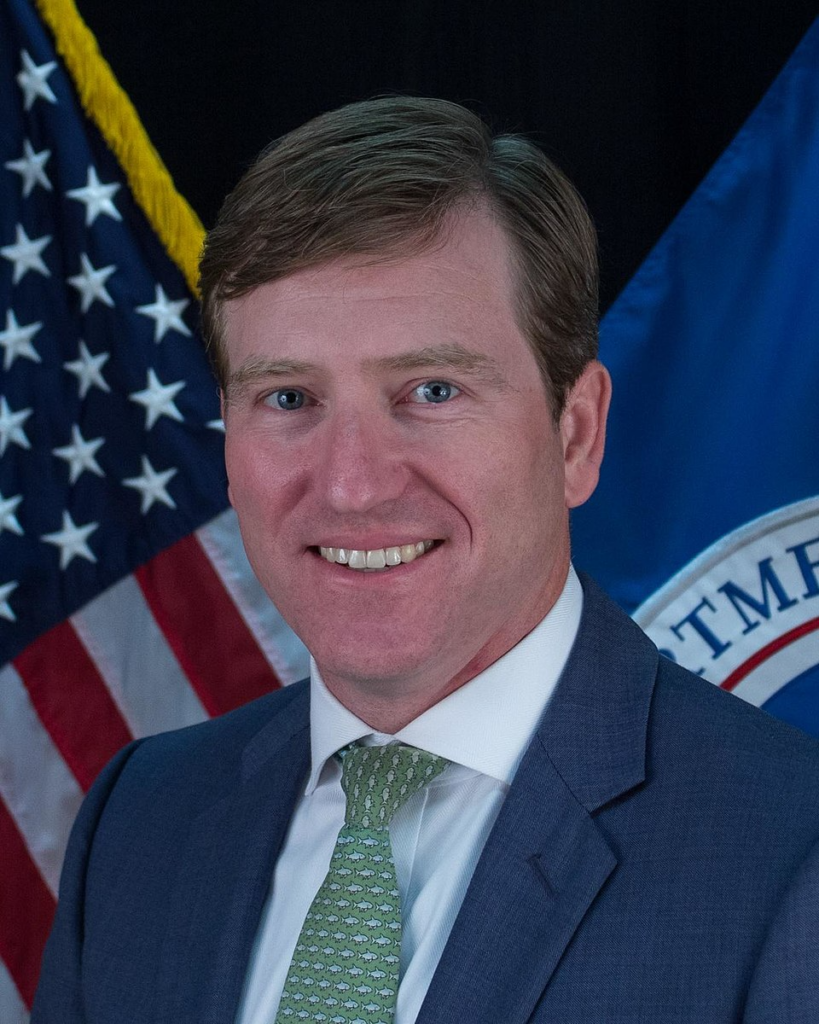Former Trump administration official turned critic Christopher Krebs warned the integrity of the electoral process is in danger of being undermined at an April 13 Zoom event.
At the event, Krebs, who served as the director of the Cybersecurity and Infrastructure Security Agency from 2018 to 2020, discussed his recommendations for how the government can protect election integrity by combatting disinformation and upgrading the security within voting software as technology becomes more sophisticated. The event was co-hosted by the Georgetown University Institute of Politics and Public Service and the Georgetown University Center for Security Studies.
In 2018, Krebs was tasked with leading the newly formed CISA under the Department of Homeland Security. After the 2020 election campaign came to a close, former President Donald Trump continued to repeat that the election had been stolen from him due to unverified claims of election fraud. Krebs publicly refuted Trump’s claims, which led to his Nov. 17 firing from the administration.

Despite the claims of Trump and his allies, there is no evidence of voter fraud in the 2020 election, according to Krebs.
“We know there wasn’t any interference. We not only didn’t see any activity that would lead to any sort of suspicion of tampering, but the proof was in the ballots,” Krebs said. “You could go back and audit and recount, and that’s what Georgia did.”
Security obstacles in the electoral process were unfortunately multiplied after the COVID-19 pandemic shut down the country, according to Krebs. In order to prevent further spread of the disease, many Americans filled out and mailed in absentee ballots, a form of voting that Trump repeatedly delegitimized, making security experts’ jobs much more difficult, Krebs said.
Despite these additional challenges, Krebs’ team was able to work with state and local officials to run a smooth 2020 election. However, Krebs said the Biden administration still needs to make it a priority to increase government infrastructure security.
“It’s even bigger than just elections. It’s state and local government agencies writ large need to go through a digital transformation, and I’m concerned that COVID-19 will have a disproportionate impact on local communities and their ability to upgrade their technologies.”
Krebs also discussed the topic of social media as a form of interference and how people in the United States can spread disinformation. In fact, the security community’s biggest worry in the summer of 2020 was not a hack interfering with machines but the danger of a false claim on social media going viral, according to Krebs.
“The way we framed it was, ‘How would any actor seek to either technically disrupt an election or undermine confidence in an election?’” Krebs said. “We had dozens of scenarios built out that you could go find out one township in Pennsylvania and claim that you did something and it could be a pivotal county that would all of a sudden be within a margin of error.”
When any alerting post is identified online, Krebs said security experts like himself do their best to get in front of the problem. However, experts must walk a deliberate and precise line in how they flag false information, he said.
“Through talking to the lie, you amplify it and give it credibility, and so there’s that balance of, ‘Is this ready for interruption yet?’ ‘Okay, now it is, let’s go get it,’” Krebs said. “You do not want to draw attention to a thing, but if it is out there, you have to kill it with fire.”
While experts will continue to learn from this past election cycle and adapt the election process to the digital transformation, Krebs said individuals can continue to do their part to uphold our political system by becoming more digitally literate and finding ways to be civically engaged.
“Some of the threats against election workers is going to have a chilling effect, and there will be a lot of attrition among election workers,” Krebs said. “I would recommend that everyone, at least for one cycle, volunteer to be an election worker, get out there and understand how our democracy works.”




















